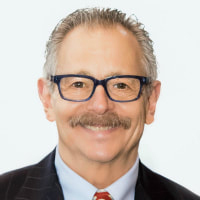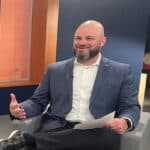
This is a personal story but I would venture to say that many of you have similar stories.
It was November 3, 1986, Washington, D.C., The Marine Corps Marathon. My target goal was 3 hours, 30 minutes. At mile 22, my quads said, “No more!” As I recall, I was near the Pentagon, and I could not move my legs.
Willing my legs to move was impossible. I remember how angry I was at them, as if they were an independent entity. I massaged them a bit as I tried to walk, maybe even pounded on them. Nothing worked. I walked slowly for miles 22 and 23. It felt like an eternity. By mile 24, I could jog slowly and did so for the rest of the race. I finally completed it in 3 hours, 41 minutes and 55 seconds — almost 12 minutes over my goal.
I will tell you that to this day, nearly 35 years later, that memory stays with me. The fact is, I had not trained enough for my goal. I had not worked hard enough.
An Earlier Success
A year and a half earlier, on March 11, 1985, I had run my first marathon, the Virginia Beach Day St. Patrick’s Day Marathon. I finished that marathon in 3 hours, 36 minutes and 1 second. The last 100 yards or so was a foot race with another competitor who wanted to pass me at the end, but I had trained better. I ran about 2,200 miles that year before, including 590 miles in the 10 weeks before the marathon and 312 miles in the five weeks before it.
Runners remember these kinds of details. We also remember the feelings during and at the end of the races. We rarely say we were or are joggers. We were/are runners. It’s not casual, it’s not a walk in the park. Although there is nothing wrong and a lot right with a walk in the park, running is about training for doing your personal best. Winning is about meeting your personal goals, not necessarily the race itself.
The Common Denominator
What does this have to do with being a financial advisor? Two things. These experiences are about being prepared, through training, and not giving up.
As I work my practice management coaching business and you work your financial advisory practice, we run into the same walls. People don’t return calls or emails. We are all inundated; that’s understood, if not accepted. What’s most important to us, is not as important to others — the people you or I am calling.
We all think WIIFM, What’s In It For Me. Most of us believe we are offering value — that’s what in it for you. But, while I am calling you, you are calling your clients and prospects. Which is more important? What you are doing is more important!
Subscribe (Minimal 2024)
"*" indicates required fields
The important thing for you is not to give up or give in. Let’s say you had a positive indication along the line with a prospect:
- You spoke with them once or twice and they were friendly enough.
- They came to a seminar, event or webinar and may have given you a positive review.
- You met with them and had some interest.
- They signed up for your newsletter or series of articles.
Now let’s say your clients works with a CPA or an estate attorney who isn’t returning your call or email.
Before getting upset, bear in mind that in 2020 the number of global e-mail users amounted to over four billion and approximately 306 billion e-mails were sent and received every day worldwide. Yours was one of those, and it may have been caught in the spam filter or been mass deleted.
Try, Try Again
What should you do? Try, try again. Make a new offer. Ask for five minutes of the professional’s time, and keep it to that. And though it may be an anathema to you, ask for help, sincerely.
Additional Reading: Help Clients Adopt a Marathon Mentality
Dr. Charles E. Dwyer, University of Pennsylvania, in a speech in 2000 entitled “Power and Influence” said, “Did it ever occur to you that simple move, that simple data fragment, ‘I need your help,’ is a very powerful way of influencing people? Why don’t we use it very often? Because by the time we’re five, what did we learn? That asking for help is a sign of weakness. It’s un-American. What is it, Bolivian? You want more power with people? You want people to change? Become indebted to them. Become dependent upon them and watch how much power you have.”
I have used all these approaches with financial advisors and the truth is, they don’t return my calls and emails all the time. But every time I get a callback, it’s a win and it deletes the memories of miles 22 and 23.
When miles 22 and 23 come back, I do it over again until I get responses or change my approach. None of us like rejection, and perhaps even less, being ignored. That’s the nature of sales. You will finish the race if you are consistent and keep putting one foot in front of the other.
P.S. In miles 11 and 12, running down a wide street somewhere is center city, I ran a seven-minute mile and a seven-minute, 15-second mile. I was so hyped! I try and remember those miles, fast for me. And no, that faster pace did not cause the “wall” I hit in miles 22 and 23.
David Leo is the founder of Street Smart Research Group LLC. He is an author, speaker, coach, consultant and trainer to financial professionals. If you would like more information about his services, contact him at David@CoachDavidLeo.com or 917-379-1249, or visit www.CoachDavidLeo.com.







